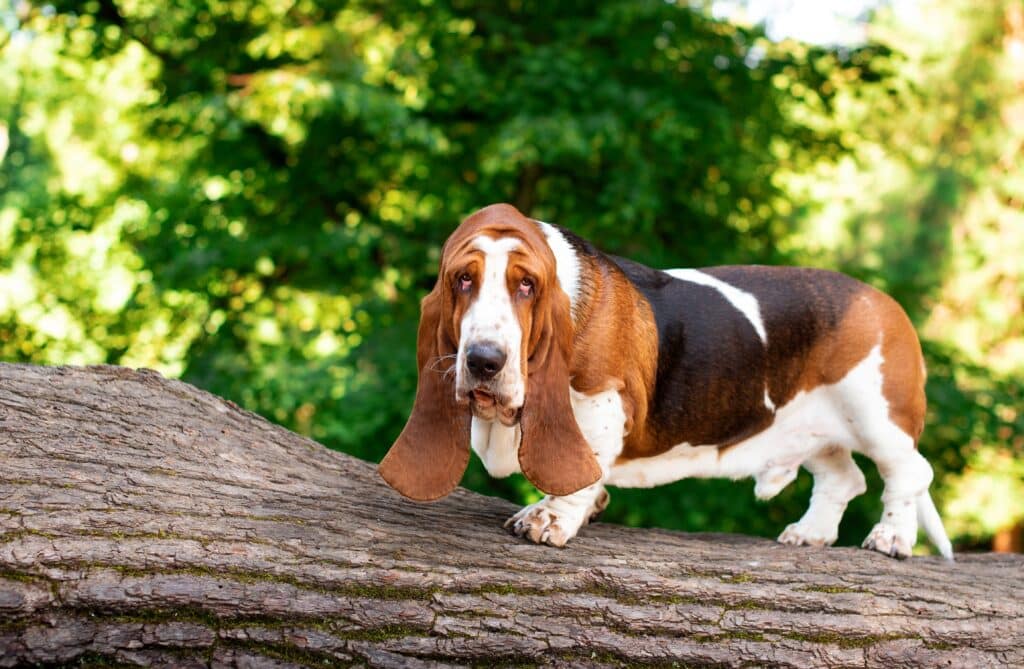- April 19, 2024
10 Dog Features Pet Owners Should Avoid According To Experts

An international team of experts reveal 10 dog features that future and current dog owners should avoid in a dog to ensure their health.
In a press release, the International Collaborative on Extreme Conformations in Dogs (ICEDogs) have revealed an international agreement that helps owners recognize naturally healthy physical characteristics for dogs.
“This new position paper from ICECDogs can help owners to determine how likely the dog is to suffer from negative impacts resulting from extreme conformations,” ICEDogs wrote.
According to ICEDogs, the increase of extreme conformations in dogs is impacting dogs’ health and overall welfare.
ICEDogs describes ‘extreme conformation’ as “a physical appearance that has been so significantly altered by humankind away from the ancestral natural canine appearance that affected dogs commonly suffer from poor health and welfare, with negative impacts on their quality and quantity of life.”

According to ICEDogs, pet owners should avoid the following extreme conformations:
- Flat-faces (brachycephaly)
- Large and protruding eyes
- Shortened and twisted legs (chondrodysplasia)
- Facial or body skin folds
- Lack of tail at birth
- A clearly overshot or undershot jaw
- A disproportionately broad head and shoulders
- Eyelids turned in or out
- A bulging or domed skull
- A sloped back with an excessively low rear end and excessively flexed hind legs
In contrast, ICEDogs enumerated traits of a dog with good innate health, and they’re the following:
- Breathe freely and oxygenate effectively
- Maintain their body temperature within a normal physiological range
- Move freely without effort or discomfort
- Eat and drink effectively
- Hear, smell, see, self-groom, eliminate, and sleep effectively
- Breeding animals reproduce without assistance
- Reproduce naturally
- ·Communicate effectively with other dogs
Dr Michelle Groleau, Director Animal Welfare, Canadian Veterinary Medical Association (CVMA) said, “The escalation of extreme conformations in animals and the serious harms resulting from them are a priority issue for the CVMA.“
She continued, “There is an urgent need for the public to be made aware of the severity of the current situation and to learn how they can contribute to a solution.“
Furthermore, Dr Dan O’Neill, the Chair of the UK Brachycephalic Working Group and co-founding ICECDogs member told The Guardian, “It is the general public that now control how dogs look.”
“We have lots of types of dogs now we own that are no longer fully functional dogs,” he adds.

O’Neill also said that people may think that acquiring dogs with such extreme conformation demonstrates our love for these dogs “because they’re cute and distinctive and unique”, when in fact, it only causes suffering.
French Bulldogs and Pugs are among the breeds that have these problematic physical traits. And O’Neill said that the international agreement is not about getting rid of them, but protecting them.
“This is not about saying to people do not ever, ever, ever buy a French bulldog or a dachshund – it is about buying a French bulldog, but one with a tail, one with a spine that bends, one with a muzzle that the dog can breath through. So in other words, it is about buying these dogs, but not the dogs with extreme conformations,” O’Neill explained.
ICEDogs is urging the public to educate themselves on what an innately healthy dog body should look like.
Furthermore, they are encouraging future dog owners to support breeders that are “effecting welfare-positive change to the conformation of a breed or cross breed”.
“ICECDogs encourages anyone thinking about getting a dog to consider all the serious welfare issues linked to extreme conformations before taking a final decision on what type of dog to acquire.”
Tags
What do you think?
Related Articles

New Puppy Checklist: Gear You’ll Need for Your New Dog
Getting a new puppy is really exciting, but before you welcome them home, it’s important to prepare your space for them. Since puppies need a

How Big Do Mini Poodles Get? Vet Reviewed Average Weight & Growth Chart – Dogster
The information is current and up-to-date in accordance with the latest veterinarian research. Learn more » When you buy a Miniature Poodle, you might not

Can Police Dogs Smell Nicotine? Vet Verified Facts & Info – Dogster
The information is current and up-to-date in accordance with the latest veterinarian research. Learn more » While cigarette sales have been declining steadily for decades,

How Old Is 5 in Dog Years? Vet-Approved Guide to Each Size of Dog – Dogster
The information is current and up-to-date in accordance with the latest veterinarian research. Learn more » A common method for calculating a dog’s age is

